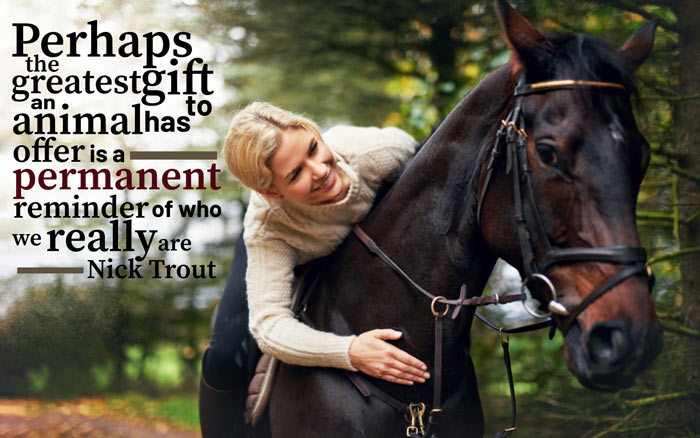Animals, especially domesticated, like to be loved and cared for by their owners. This is equivalent to human emotions in that they seek attention from the persons they love. However, why do animals like being pets? This is a question we always try to find the answer to.
So, in this article, we’re going to answer this question. We’ll explore some scientific studies and some logical concepts to grasp the idea.
Let’s jump right in!
Table of Contents
5 Reasons Why Do Animals Like to Be Petted:
The reason why animals love the caressing of humans is still under examination. However, some studies and discussions explain why animals like petting, rubbing, pinching, poking, and prodding-like sensations.
And after examining several studies and discussions, we conclude five reasons for answering this question. Now let’s understand each one by one.
Pats Make Them Feel Good
Stroking the skin of some animals provides them a pleasurable sensation. If you ever noticed, you might know how cats and dogs react on a smooth path on their forehead or cheeks. And this is not just an assumption. Science also proves this argument.
According to a study, some domestic animals feel good when petting their hairy skins. This is also true for us. Remember the time you fall asleep when your mother gently pats your head.
This is due to the presence of a set of sensory neurons attached to your hair follicles. And these sensory neurons express a unique receptor, namely MrgprB4+.
MrgprB4+ neurons are activated by the stroking of hairy skin and not by the poking or pinching.
For analyzing the petting effects of this neuron on animals, researchers created a chemical that activates the MrgprB4+ and applied it to genetically engineered mice so that they can detect the reaction of mice after sensing the touch.
One of the co-authors, David Anderson, explains that petting creates pleasurable feelings in some mammals as the nerve endings are attached to their hair follicles. That sensation might address a reward of pleasure in a higher circuit of the brain where it’s connected.
It Has Calming Effects on The Body
Besides the pleasurable sensation of petting, it also has calming or relaxing effects on the body of most mammals.
Gentle stroking creates a kind of social grooming effect in some animals. And based on research, social grooming releases a hormone endorphin in the body, causing it to relax and induce sleep.
Endorphins also have stress-relieving properties. It has effects on both physiological stress or emotional stress. Furthermore, the hormone oxytocin also has effects on creating calmness and relaxing the entire system of mammals.
According to a study, mice with a high level of oxytocin reduce blood pressure and locomotion and even create an anti-stress effect on the body. Therefore, domestic animals like cats and dogs love this kind of attention from their owners.
It Creates a Sense of Belonging
Some domesticated animals like dogs and cats are involved in grooming. They tend to keep themselves clean by licking their body all around.
According to a study, social touch develops a sense of love and belonging among mammals from a young age. And there’s no doubt why cats tend to be more friendly if they interact socially from an early age.
That review also indicates that deprivation of social touch can create a high level of anxiety as it’s essential for healthy development.
They Might Feel Safe and Protected Around Their Owner
Most pet owners argue that petting creates a sensation in the pet that makes them near to their mother.
Like their mother, when you groom around their head and chin, where they can’t reach by themselves, they might have a strong connection. In that way, they may feel more comfortable and protected around you, making a solid bonding.
Also, several studies describe that physical contact develops reliance and a safe perception between domesticated animals and humans. However, there is no direct evidence behind this argument. It’s just an assumption that pet owners make.
Yet, there’s no doubt that pets feel safe around their owner. And petting might create such a feeling.
It Creates a Strong Social Connection
Social grooming or allo-grooming is linked to the social interaction among animals. From primitive times, our wild ancestors used this technique to remove harmful parasites from the hairs. And it’s a way to keep themselves hygienic.
However, this creates a social bonding among animals. And humans are not so different. The sense of touch is the most vital link for humans as well.
According to a review published in neuroscience and behavioral reviews, self-grooming is more about cleaning themselves from harmful parasites or dust or dirt. But allo-grooming or social grooming is more about creating a solid relationship with the partner.
Petting and rubbing-like movements also have psychological effects due to the release of hormones like oxytocin and arginine vasopressin. A study suggests that these two neuropeptides, having very similar structures, impact the processes of pair-bonding among mammals.
Thus, animals like being pets as they want extra care and attention from their foster parents.
Final Words
on why do animals like being pets?
Domesticated animals like cats, dogs, horses, and rats like being pets for various neurological, psychological, or physiological reasons.
However, some other creatures such as squids, bats, rodents, birds, some reptiles like lizards, and sometimes ants and bees also found social contact pleasurable.
And it’s not just pets who love to be petted but, we humans also have several effects of emotional interaction with them. Several studies claim that having pets or involving emotionally with animals reduces heart diseases, lowers blood pressure, and releases stress.
Further, some studies directly show a link between patient recovery and social interaction with pets and primarily due to several endocrine stimulations.
So, these are not only pets who enjoy the touch from their foster parents, but we also love being connected to those creatures on different levels.

